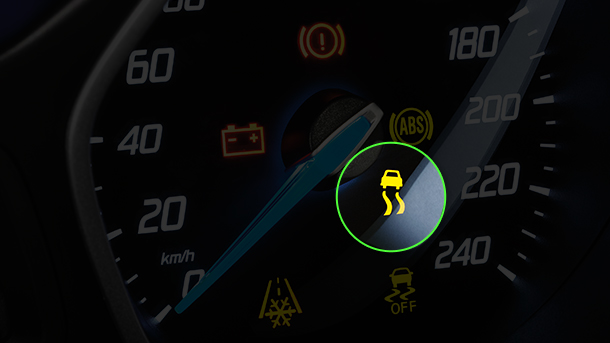Electronic stability control (ESC) is one of the latest car safety technologies. It assists drivers to control the vehicle in case of sudden braking and emergency situation. Electronic stability control has now been introduced by multiple car manufacturers worldwide in their vehicles. Electronic stability control is named differently in different regions of the world and is alternatively known as dynamic stability control, vehicle stability control and electronic stability program etc. Now, car customers are more aware of importance of safety features in cars and consider safety as an important facet while buying new cars. This is what urges car manufacturers to think of new innovations to make their future cars safer than ever.
Here we will discuss the working and importance of electronic stability control in modern day cars.
What does Electronic Stability Control do
Electronic stability control system plays an active role in preventing a car from collision. Basically, electronic stability control in cars works with a computer operated system to apply brakes when driver loses control while driving. It keeps the car back on track in case of swerving by applying brakes at the right time. Whenever the car faces jerks due to driver’s loss of control on steering, ESC becomes activated and provides the ultimate control needed. In this way, the chances of collision and accident minimize and occupants of the car remain safe.

Also read: 5 Advanced Vehicle Safety Technologies
Functions of Electronic Stability Control
The electronic stability control (ESC) uses intelligent radars and sensors. These sensors monitor the movement of vehicle and if they detect any possible emergency situation where control on steering wheel is lost, they automatically react and ESC system takes over the control of vehicle. The brakes are automatically applied to keep the vehicle stable in its dedicated lane. In some cars like Ford Fiesta, there is an option to turn ESC system on/off. In such circumstances, the Electronic Stability Control will only work when activated by the driver. ESC is generally capable of performing following functions:
- Assisting Driver to Control Steering
- Maintaining the Stable Position of the Car
- Providing Improved Handling
- Enhancing traction on Slippery Roads
There could be minor variations in the ESC system based on car make and model but the fundamental functionality remains same.

Factors Influencing Performance of Electronic Stability Control
You need to know that the performance of electronic stability control (ESC) depends on certain factors. The maintenance of a car from mechanical point of view is important for smooth functioning of the ESC System. The poor consistency of brake oil due to lack of regular brake oil change can also impact the performance of electronic stability control system. Bad condition of tyres also puts a negative effect on the outputs delivered by ESC system. The Electronic stability control system helps most in rough road conditions and bad weather (rains, sandstorms). A car must be maintained efficiently for its ESC system to work properly all the time.
If you are looking to buy a new car with advanced safety features, sell your old car first to SellAnyCar.com in just 30 minutes. We buy any car in any condition everywhere in the UAE.



